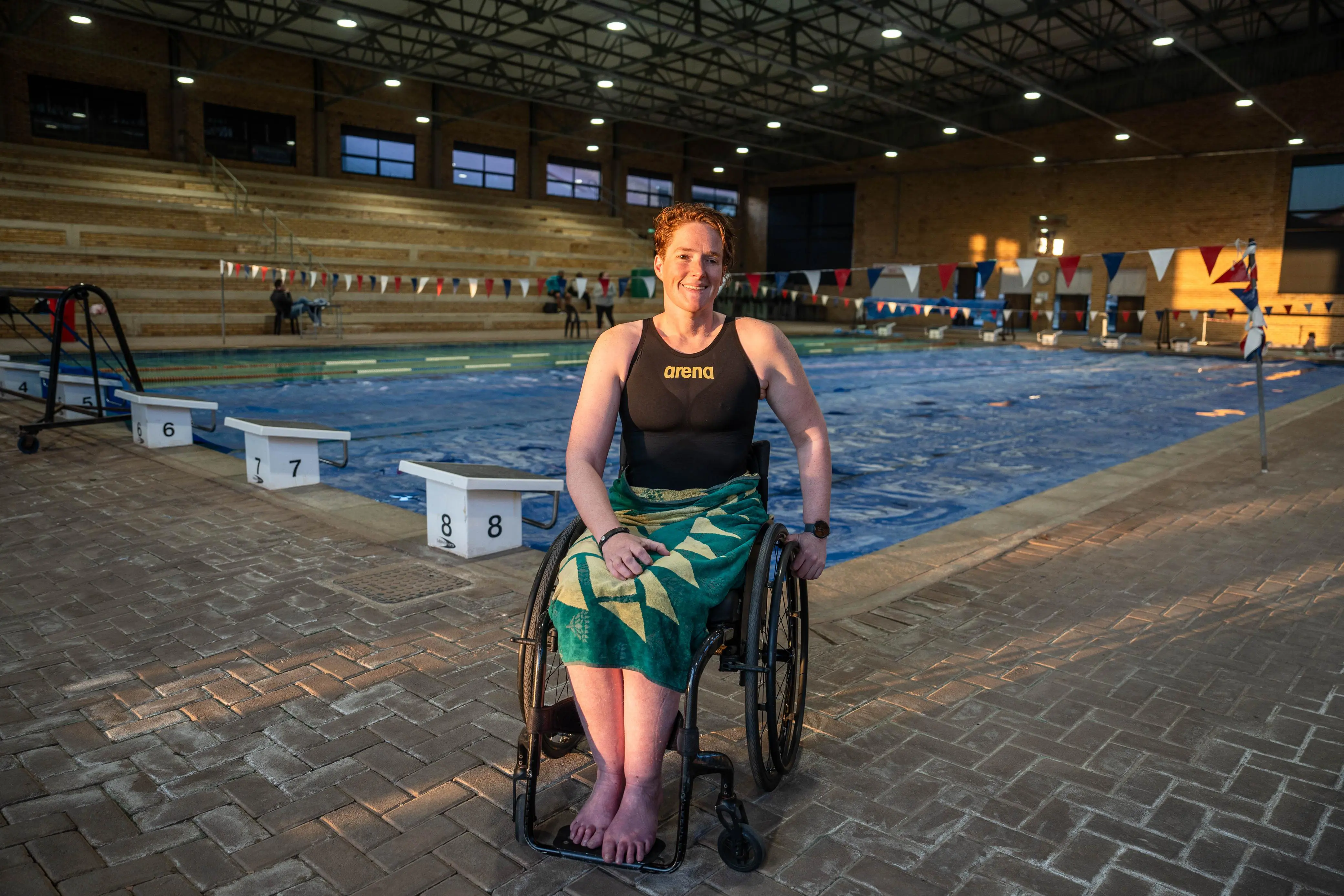PARALYMPICS 2024: 'I'm not done yet,' says swimmer Swanepoel after Games withdrawal
The athlete finished 11th in the Women’s 50m backstroke, setting a new African record despite a dislocated shoulder.

Para-athlete Kat Swanepoel represented South Africa at the 2024 Paralympics. Picture: Jacques Nelles/ Eyewitness News.
JOHANNESBURG - South African Para-swimmer Kat Swanepoel dislocated her shoulder during her 50m backstroke on Tuesday and it seems that her Paris journey has sadly ended.
"I'm just heartbroken to have to withdraw," said Swanepoel.
The Paris Paralympic Games flag bearer told Eyewitness News that she’d been advised not to compete further.
"Our medical team have advised that I don't compete further. The doctor relocated it at the pool twice and they've now immobilised it," said Swanepoel.
READ MORE:
• Swanepoel and Mhlongo named as Team SA's flag bearers for Paralympics
• Kat Swanepoel bags Team SA's 1st medal at the Para Swimming World Champs
• Para-swimmer Swanepoel bags gold and breaks African record at World Champs

The athlete finished 11th in the Women’s 50m backstroke, setting a new African record despite a dislocated shoulder.
"It dislocated halfway through my race. I didn't feel the pain because of the adrenaline but lost all power. If you watch my race you can actually see it go and I end up on the lane rope on my right for the rest of the race."
She further told Eyewitness News that she was going to need some time to rest and recover but this wasn’t the end for her.
"I'm going to need some time for rest and recovery... will most likely need surgery on the shoulder but I'm certainly not done yet."
Swanepoel has a progressive degenerative form of multiple sclerosis that she acquired in her fourth year whilst studying occupational therapy in 2008.
"I have an auto-immune condition called Primary Progressive Multiple Sclerosis (PPMS), where my immune system attacks my central nervous system, causing paralysis, amongst other issues," explained Swanepoel.
Her disability has other underlying issues that aren’t as visible, such as being paralysed from the chest down, going blind in one eye, and having her body get progressively weaker, to where she now has no sensation or movement from her chest down or half of her arms.
When fatigued, she also struggles with speech as parts of her brain, optic nerves and spinal cord can be affected by her disease. She has had a stroke, and seizures aren't uncommon.